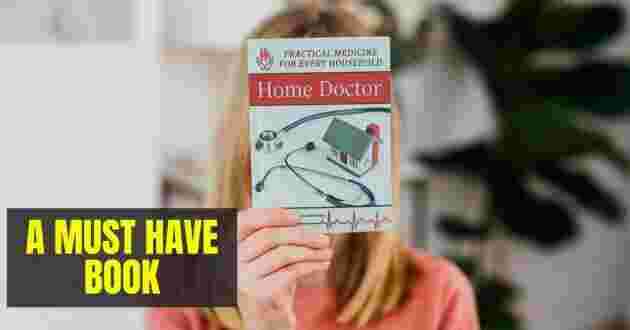Simple Issues Caused By Aging With An Easy Fix
- - Category: Elderly Care
- - 16 Sep, 2023
- - Views: 279
- Save

Our bodies grow older over time, and sometimes they cease to function perfectly. However, medicine can help.
Aging is a natural process that we all go through. But as we age, we often experience a number of health issues that can make our lives uncomfortable and even difficult. The good news is that many of these issues can be easily solved. In this post, we'll talk about some common issues caused by aging and discuss some solutions to make life easier. If you're an aging individual struggling with health issues, keep reading to learn more about how you can help yourself.
Joint Pain
Joint pain is a common problem among aging individuals. Osteoarthritis is a leading cause of disability in older adults. Exercise is one of the best ways to keep your joints healthy and reduce the pain. Low impact exercises such as swimming, cycling, and walking can help keep the joints flexible. Aquatic therapy, yoga, and tai chi are other great options for improving joint pain. Over-the-counter pain-relieving creams and topical medications are also available to help reduce arthritis pain.
Getting support for joint pain is important to ensure that you are able to get the best treatment possible. Talk to your doctor about potential treatments and ask if there are any lifestyle changes you can make or medications you can take to help manage the pain.
Additionally, there are a variety of support groups, both online and in-person, dedicated to helping individuals suffering from arthritis and other forms of joint pain. These groups provide a valuable source of information, support, and guidance for those struggling with joint pain. They can also be a great way to connect with others who are facing similar challenges and share tips for managing the condition. No matter what approach you take, getting the right support is essential for treating joint pain effectively.
Poor Vision
Vision problems are common as we age. Cataracts, macular degeneration, and glaucoma are the most common causes of vision loss. If you experience vision problems, it's important to get regular eye exams. Your eye doctor can prescribe corrective lenses, suggest eye exercises, or perform surgical interventions to improve your vision.
Eating a healthy, balanced diet is an important part of maintaining good vision. Eating plenty of fruits and vegetables has been shown to help reduce the risk of age-related vision degeneration. Foods like leafy greens, citrus fruits, fish, eggs, nuts and seeds are all packed with essential vitamins and minerals that can help keep your eyes healthy.
It's also important to avoid processed and sugary foods as these can increase your risk of developing cataracts and other vision problems. Keep in mind that it's never too late to start eating healthy—making small changes to your diet can have a big impact on all aspects of your health.
Digestive Issues
Age-related digestive issues are common, including constipation, heartburn, fecal incontinence, and acid reflux. One of the best ways to improve digestive health is through diet. Focus on a balanced diet with plenty of fiber and hydration.
Avoid foods like fatty or fried foods, dairy, and spicy foods. Try adding probiotics, such as yogurts or supplements that have good bacteria to your daily routine. Talk with your doctor or pharmacist for medication recommendations for any stomach problems you have.
Poor Balance
Falls are one of the most significant injury risks for older adults. Poor balance contributes to falls, so it is helpful to practice balance exercises. Simple exercises such as standing on one foot or practicing tai chi or yoga can help.
Make your home fall-proof by removing tripping hazards like loose rugs or clutter from your living space. Keep the paths clear and well-lit. If you experience dizziness, talk to your doctor about how to manage it.
Walking aids, such as canes or walkers, are another great way to help improve balance and reduce the risk of falls. Canes provide a sense of security and stability when walking, while walkers offer more support. Both can be adjusted based on your height and weight for optimal comfort. Be sure to consult with an occupational therapist if you're considering using a cane or walker to ensure that you're using the right type of device for your particular situation.
Memory Loss
Memory loss is a common issue that comes with aging. Mild cognitive impairment (MCI) is a transitional stage between normal aging and dementia.
Engage in mind-stimulating activities as much as you can, such as crossword puzzles, memory puzzles, and reading. Staying active and social can help maintain brain vitality. Getting regular mental check-ups with your doctor can help detect problems early and can help prevent further memory loss.
In addition to engaging in mental activities, there are other simple things you can do to keep your brain happy. Getting enough sleep is essential for maintaining good cognitive health, and exercise has been shown to improve memory and reduce the risk of dementia symptoms.
Eating a balanced diet rich in healthy fats also helps keep your brain functioning optimally. Additionally, socializing with friends and family can help keep your mind sharp and boost mental health. Lastly, spending time outdoors in nature is thought to reduce stress and improve cognitive function, so make sure you get outside as much as possible.
Aging is inevitable, but we can age gracefully with a few simple lifestyle upgrades. We hope this post has provided you with some helpful tips to keep your health on track. Remember, it's important to get regular check-ups, maintain a healthy diet, and stay active mentally and physically. Don't let aging slow you down, grab hold of it and continue to live the life you love.


